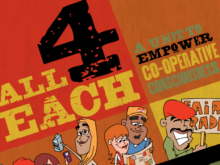The teachings of the Bahá’í Faith encapsulate a profound and progressive vision for humanity. A principle that resonates deeply within this belief system is that of education, drawing on the intrinsic value of knowledge as a catalyst for individual and societal transformation. With a focus on personal growth and collective advancement, one must ponder: How does the educational philosophy within the Bahá’í teachings serve as a clarion call for dedicated teachers and educational reformers? This inquiry beckons an exploration of the interplay between faith and pedagogy in the Bahá’í community, particularly as it relates to the responsibilities and aspirations of educators.
At the heart of Bahá’í teachings lies the assertion that education is not merely a tool for economic or professional development, but a sacred obligation that contributes to the moral and spiritual elevation of both the individual and society. This perspective challenges traditional notions of education as solely a means to an end. Instead, it posits a holistic approach whereby knowledge serves to build character and virtue. According to Bahá’í scripture, “The purpose of education is to promote the unity of mankind.” Herein lies the pivotal role of teachers; they are not merely conveyors of information, but rather architects of civilization, tasked with nurturing the potential of each student to contribute to humanity’s collective harmony.
Within this framework, Bahá’í teachings encourage educators to transcend mere academic instruction to become catalysts for moral development and social transformation. The ideal teacher, therefore, embodies a duality of erudition and ethical exemplification. They engage students not only through traditional scholastic methods but also through instilling a love for truth, justice, and compassion. The challenge arises in reconciling the breadth of this responsibility with the oft-limited resources and support systems available to educators today.
Furthermore, examining the concept of “teachers as community builders” elucidates the expansive vision of unity espoused by Bahá’í teachings. Each educator is a vital participant in the tapestry of community life, promoting collaboration across diverse cultural and social backgrounds. This directly challenges the prevalent dichotomy often found in educational settings where competition supersedes collaboration. The Bahá’í model invites a paradigm shift: educators as facilitators of connection, fostering environments where children are taught to value empathy and cooperation above rivalry.
Moreover, the teachings advocate for the inclusivity of all individuals regardless of gender, race, or socio-economic status in the educational process. This principle is especially significant in combating systemic inequities present in many societies. The Bahá’í Faith posits that access to quality education must be a universal right, not a privilege. This very fearlessness in confronting societal injustices propels educators to become advocates for change, challenging existing paradigms within educational institutions and advocating for policies that ensure equitable access to educational resources. What actions can educators take to advocate for such transformative changes?
Inherent in this call to action is the recognition that educational institutions should not merely reflect the socio-economic divides present in wider society. Instead, they should operate as models of the unity that Bahá’í teachings extol, signaling to students that diversity is not a detriment but a strength. As educators strive to fulfill their roles as community builders, they face the task of cultivating an inclusive atmosphere that challenges prejudices and promotes a sense of belonging for all learners.
Additionally, the role of educators extends into the realm of spiritual education—a concept distinctly emphasized within Bahá’í teachings. Spiritual education nurtures the dimensions of human development that may often be overshadowed in conventional educational paradigms focused solely on intellectual achievements. Bahá’í writings proclaim that “the education of the heart and mind” is essential for nurturing individuals who can contribute positively to society. Herein lies the potential challenge: How can educators effectively integrate spiritual teachings with academic curriculum in a secular educational landscape?
To bridge this gap, innovative pedagogical strategies must be employed. Teachers can foster reflective practices that encourage students to engage with ethical dilemmas and develop critical thinking skills in tandem with spiritual values. Methods that incorporate storytelling, discussions of moral philosophy, and community service can instill both knowledge and empathy. In this light, educators become not only purveyors of information, but also mentors guiding students towards becoming conscientious global citizens.
Lastly, the Bahá’í principle of lifelong learning underscores the necessity for educators to engage in continuous self-improvement and professional development. The pursuit of knowledge is not confined to the classroom; rather, it extends beyond, urging teachers to remain learners themselves. This dynamic cultivates an environment of inquiry, humility, and resilience—qualities that are indispensable for both teachers and students in evolving educational landscapes.
Thus, the call to action for Bahá’í educators resonates on multiple levels—challenging them to embrace their roles as transformative agents equipped to promote unity, equity, and love for humanity. The challenge is staggering yet invigorating. Educators are not just tasked with teaching subjects; they are entrusted with the noble undertaking of shaping hearts and minds in ways that propel society toward a brighter, more just future. Therefore, as stakeholders in education, the question remains: Will the plea of dedicated teachers be heeded in their quest for both personal and societal enlightenment?
